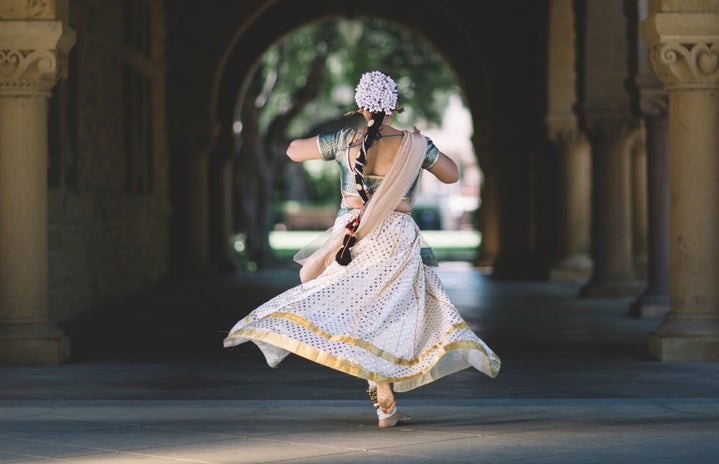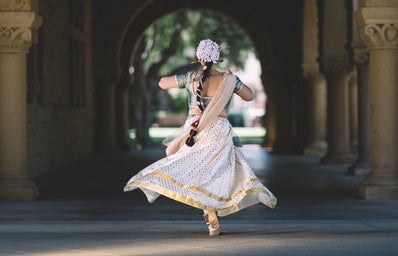The youngsters today are stuck in a phase wherein some of the families are cool with love marriages, while on the other hand, for some, arranged marriage is the only option and it is set in stone. Some parents, grandparents and relatives won’t give it a minute’s thought to show their disapproval for love marriages. In fact, they already have a list of divorces at the tip of their tongues to support their argument. In most cases, couples with disparate social and economic backgrounds or religiously conservative families don’t receive family or community support. Since there is less family support in love marriages, the couple is usually left on their own to deal with their issues, along with the warnings of their families hanging over them like a sword.
Arranged marriages in India boast marital longevity and bliss and pose as the epitome of family life. Since Indian culture and its festivities are all family-oriented, they are scared of the humiliation and the isolation attached with love marriage and that they would probably have to face in the future if associated to it. There is a constant fear of their marriage being branded as ‘hasty and childish’ or as ‘a decision they’ll regret’ by their families. Since childhood, Indian youth have been trained to put elders on a higher pedestal and respect them for their age and experience. When it comes to their marriage, they feel it is natural for their families to intervene and get hold of the upper hand. Indian marriages highlight the fact that marriage is more than just an individual choice; instead, it is a matter of collective choice of the whole family. A marriage is considered synonymous with a lifelong commitment and anything that can be a potential obstacle during its course should be omitted beforehand.
Love marriages seem to consider the mutual attraction and personal and interpersonal compatibility of each person in the relationship, while arranged marriages consider their socio-economic status, health, fertility, appearance, geographic location, family reputation and much more. Other than that, it is supposed that the couple whose journey went from the first date to a marriage proposal will find mutual love and understanding after they get married. This is what sets this arrangement of marriage different from love marriages at first glance. Love marriages may not ensure their families’ socio-economic compatibility but they do have mutual affection and understanding as their foundation. In this kind of setting, even if the families put forward much resistance to accept the relationship, the couple can trust their bond to provide each other sufficient support.
Other than the power differentials between the elders and the children, there may be inequities between the genders too. For women in India, marriages open the door to the religious, traditional and gendered expectations of the society. Behind the veil of conventional norms, women in an arranged marriage are required to live up to the expectation of their new family and, in some cases, reinforce their lesser status in the new family. In fact, examining the status of women in a married relationship is pivotal when talking about their role in society.
A new bride is judged heavily on a daily basis and is scrutinized based on how she treats her elders, in-laws and her husband. A prominent tradition in South India-‘Pennu Kaanal’, translated as bride-viewing, serves as a trailer for her life after marriage. During this occasion, a man visits the house of a prospective bride with his family while the girl is required to serve them tea in good clothes to impress her suitor. Here, the girl is given one chance to display her looks, cooking skills and personality, based on which her suitor would choose whether or not to take her hand in marriage. This viewing of the potential bride as a commodity on display is just one chapter from the book. Charlotte Brontë’s Jane Eyre does an amazing job at depicting women’s lost autonomy as an individual when entering into a marriage.
This classic debate between the two marriage settings reaches a meeting point in the hybrid form of modern arranged marriages. Here, falling in love independently without much involvement of the parents initially is an important feature. This may seem like the perfect solution but usually is successful within the boundaries that were tacitly drawn since childhood. For a generation stuck in the transition phase, we are living with the underlying dread of letting go of all the traditions we grew up seeing. Simultaneously we want our values, independence and emotions to be accounted for while choosing our life partners. The Amazon originals series Made in Heaven was a breath of fresh air for all of us; it spoke the crucial truth and left no stone unturned. It magnified the chaos of Indian marriages and also explored its problems which were cloaked in silence. The unwritten norm that exists-arranged marriages between heterosexuals, has been broken down and analyzed for its numerous loopholes.
In the end, it all boils down to one thing- which setting of marriage will make it to the end. Love marriages are founded on basic emotions of mutual love and trust. If anything happens to make the couple question the integrity of this foundation, the marriage is said to crumble. This is why the old generation casts it as ‘hasty’ and ‘impractical.’ In an arranged marriage, even if problems arise, the couple is under much pressure to suppress them and make adjustments as much as possible. In such a marriage, an individual might feel suffocated and unhappy although they portray themselves as a happy and successful marriage. The option of divorce here is delayed as much as possible through adjustments, while love marriages tend to make use of it to free themselves of an unhappy marriage as soon as possible.
Having said that, there are love marriages that have lasted years, as well as arranged marriages that didn’t make it to the end. No matter what path they take down the line, a marriage always calls for adjustments and patience when dealing with their respective partners. We know for sure that arranged marriage will be a thing of the past in a few years and love marriage is our future. But for now, we, as the younger generation, are definitely scratching our heads while weighing down the pros and cons.

